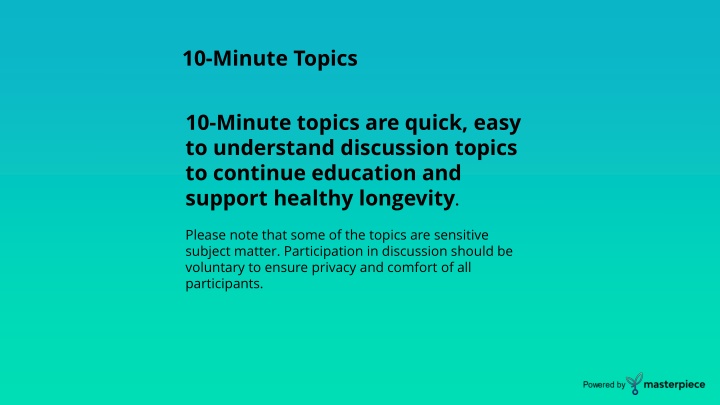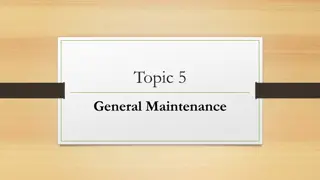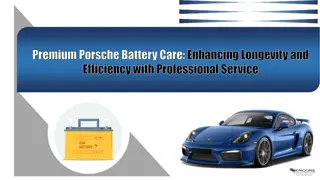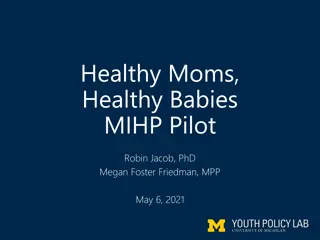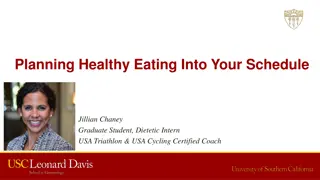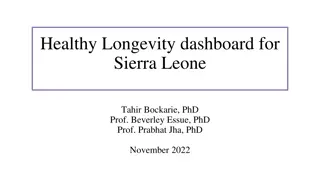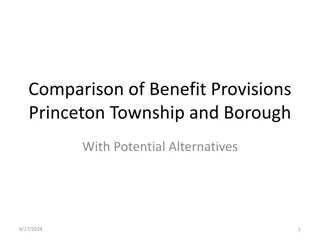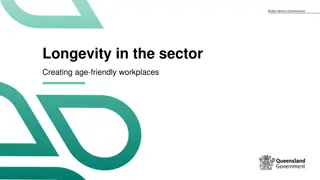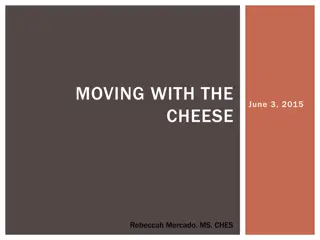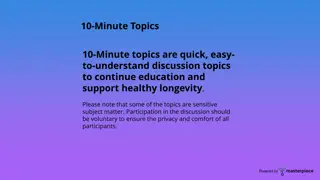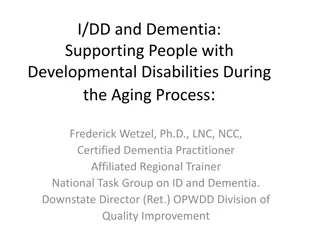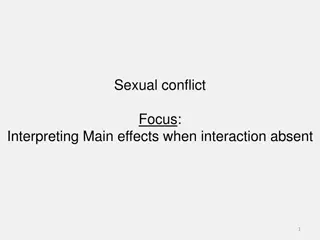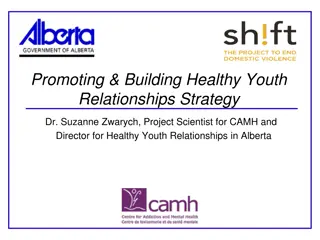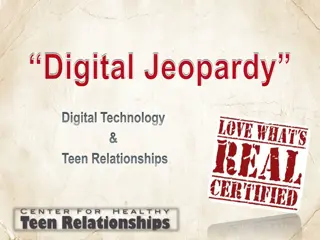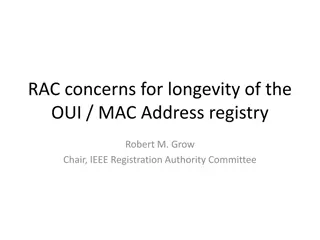Quick Topics for Healthy Longevity
Covering a range of easy-to-understand discussion topics, these 10-minute topics are designed to continue education and promote healthy longevity. While some topics touch on sensitive subject matter, the focus remains on providing accessible information for all.
Download Presentation

Please find below an Image/Link to download the presentation.
The content on the website is provided AS IS for your information and personal use only. It may not be sold, licensed, or shared on other websites without obtaining consent from the author.If you encounter any issues during the download, it is possible that the publisher has removed the file from their server.
You are allowed to download the files provided on this website for personal or commercial use, subject to the condition that they are used lawfully. All files are the property of their respective owners.
The content on the website is provided AS IS for your information and personal use only. It may not be sold, licensed, or shared on other websites without obtaining consent from the author.
E N D
Presentation Transcript
10-Minute Topics 10-Minute topics are quick, easy to understand discussion topics to continue education and support healthy longevity. Please note that some of the topics are sensitive subject matter. Participation in discussion should be voluntary to ensure privacy and comfort of all participants.
Video Games 01 How often do you play video games? Are they physically challenging, intellectually challenging, or both? Video games have rendered positive results for older adults who engage in games that stimulate brain activity. A new generation of games has surfaced for those who want to reap the mental and physical benefits of playing. Benefits include 02 improved memory and brain function, which protects against How can you encourage others to participate in these types of video games? age-related cognitive decline and promotes gains in memory, attention, agility, and hand-eye coordination. 03 Who can share the names of video games that support brain and physical function?
Ageism 01 Have you experienced ageism (ageism can exist in all age groups)? What was this experience like? Ageism is defined in the Merriam-Webster dictionary as prejudice or discrimination against a particular age group, especially older adults2. 02 Where might you have seen ageism in the media? 03 What can help counter ageism in our own community?
Alzheimers Disease 01 What activities do you engage in regularly that are intellectually stimulating? True or False: Every older adult will experience Alzheimer s disease(AD) sooner or later. False. Research has shown only 10% of people age 65 and older have AD. The risk does increase as people age. If AD runs in the family, a person 02 could have up to a 50/50 chance of getting it. Someone with What types of activities does our community offer to help ward off Alzheimer s disease? AD not only experiences memory loss, but eventually problems with speech, behavior, and other brain-related abilities. However, there are things people can do to decrease their risk of AD, such as regular physical activity, brain exercise and healthy nutrition. Researchers are working 03 How can you share what you have learned about Alzheimer s disease? hard to find a cure, until then, we can follow the recommendations to help decrease risks and delay symptoms.
Memory Loss-True or False? 01 What do you do to challenge your brain and help grow new brain cells? True or False? Memory loss is just a fact of life for everyone, especially as they age. The answer is false. The brain can continue to grow new brain cells and create new neural pathways! So, no matter how old you are, research 02 shows new brain cells can be developed by challenging the What could we do to incorporate more intellectual challenge into our daily lives? brain and learning new things. By continuing to "grow" the brain, it can become denser, which reduces the risk of Alzheimer s Disease.
Card Games 01 What types of card games do you enjoy playing on a regular basis? What s your favorite card game? Maybe you didn t know that people who participate in brain-engaging activities such as card games can reduce their risk of developing Alzheimer s disease. Research shows that older adults who participated 02 in activities that require brain power, such as playing cards, What types of group card game activities does our community offer? maintained memory and information processing abilities better than those who did not. Most people play cards because they enjoy doing so and the intellectual benefits can be an added bonus to this enjoyment! Communities often 03 have groups that meet regularly to play cards and socialize. What are some of the barriers that keep people from playing card games?
Stress Symptoms 01 What type of things or situations cause you stress? Stress may not seem like something that has a physical impact on our body, however it certainly does. Stress is both a physical and psychological reaction. Stress is a natural reaction that humans are born with. Modern life offers plenty 02 What helps you to cope with stress? Are these considered healthy coping strategies? of things that can be perceived as stressful. If this stress gets out of control, it can cause other health issues such as depression and heart disease. Finding the root cause of the stressor and using healthy coping methods are the best ways 03 How can our community help support each other in managing stress? to manage stress.
Mental Function Myth and Fact 01 How can you plan to stay mentally engaged throughout life? Have you ever heard the expression you can t teach an old dog new tricks ? What does that mean? This is a myth that at a certain age it s too late to challenge yourself or learn new things. But the research tells us that our capacity to grow and 02 learn continues throughout life. According to research on How can you find balance in your life of the three predictors of mental functioning? (Repeat 1- 3 on card) healthy longevity, there are three features that predict strong mental function in old age: 1. Regular physical activity 2. A strong social support system 3. Belief in one s ability to handle what life has to offer. 03 Where might you find the support you need if one or more of these are not balanced in your life now?
Stress 01 What types of stress do you think people around you deal with? Living with constant stress is very unhealthy. Constant stress in our lives kills brain cells, limits the growth of new brain cells and makes our immune systems weak. 02 Name the programs offered in the community that help people deal with stress. 03 Is constant stress a part of your life? If so, how can you get the support you need to better deal with stress?
Art Therapy 01 Is art a part of your life? Is there something artistic you would like to learn? Art can be therapeutic. Different types of art, from painting to sculpture to dance and songwriting, can all support wellbeing. Even viewing pictures of nature when you are enclosed inside can help elicit a sense of peace and calm. Art can be 02 therapeutic when performed as an individual or as part of a How can you encourage more people to participate in art even if they don't think they are good at art? group. Anyone can be creative and be an artist even if just in very simple ways. Community art projects are a wonderful expression of this with many people contributing smaller parts to a larger interesting project. Art can provide a creative 03 outlet, social connections, mental stimulation, meaning and What types of art opportunities are offered within the community? purpose, and more! In general, art can have a positive effect on everyone
Internet Searches 01 What are some of the other benefits of using the computer? Research shows that doing internet searches, especially people learning this as a new skill, improves brain function. The same parts of the brain that control language, reading, memory, and visual abilities are all activated during 02 internet searches. What are some of the reasons people choose not to use computers? 03 How can we increase computer usage in our community?
Music 01 How is music part of your everyday life? Music is a very important part of most people s lives and is integrated into the fabric of daily life in almost every culture. Research has shown that music can be a tool that promotes brain activity, relaxation, social interaction and 02 reminiscing. It has also been shown to be beneficial for older How does music affect your mood? Can you share some examples of this experience? adults with memory issues. No matter your age, music can be used to create a positive and relaxing environment for almost any mood. 03 How can you share what you enjoy about music with others?
Memory Loss 01 What can you do to keep your brain sharp as you age? There are changes that happen with aging. However, most of the loss that is experienced in the usual aging process is preventable, caused by lifestyle choices. You have probably heard this as it relates to physical effects, but this goes for 02 What opportunities exist at our community to help us keep our brains sharp? mental function as well. In the MacArthur study on successful aging, older men and women who were showing clear cognitive decline showed substantial improvement after just five topic sessions. Best of all, this improvement was 03 maintained in follow-up testing. So, the bottom line is, How might you encourage others to participate more in intellectual programs and activities? difficulty with memory is often due to lack of practice. With practice most people, young or old, can improve cognitive function.
01 Book Club How might you go about starting a book club, or increasing participation in a already in place within our community? Some of the strongest learning that took place in your school years might have been the knowledge and insight gained from book reports. Just as you did in school, you can continue your quest for knowledge by reading 02 books. Consider joining or forming a book club to take the Do you prefer discussing books with others individually or with a group? experience to a higher level as you read a personally selected book and report on it or have weekly discussions on a book everyone in the group reads. Chances are everyone brings something different to the table each week and the 03 How might reading books individually or as a group be different now as opposed to when you read books in school? discussions become very engaging!
Video Communication 01 What forms of video communication have you used? What forms would you like to learn more about? Zoom, Facetime, and Microsoft Teams are three forms of popular video communication used today. These and other similar communication tools became even more popular as people isolating during the Covid pandemic sought out visual 02 connections with family, friends and business partners. Many What opportunities do we have in our community to help others learn and use video communication to connect with others for exercise, recreation or education? people feel this form of communicating is more personal and engaging than using text, email or even the phone. Video communication is available on smart phones, tablets and laptops making it a convenient options for many. These technologies are also bringing more social and learning opportunities to audiences around the world. Some are designed specifically for older adults including GetSetUp and Senior Planet.
Computer Connections 01 Why do you think computer use creates a sense of wellbeing for older adults? Can you believe that using computers impacts your health? A New Zealand study of people ages 65-84 found that those who used email and the internet felt healthier, participated in more leisure activities and had more feelings of wellbeing 02 than those who weren t computer users. Are you a computer user? If not, would you like to learn? 03 What opportunities exist at our community that promote computer use?
